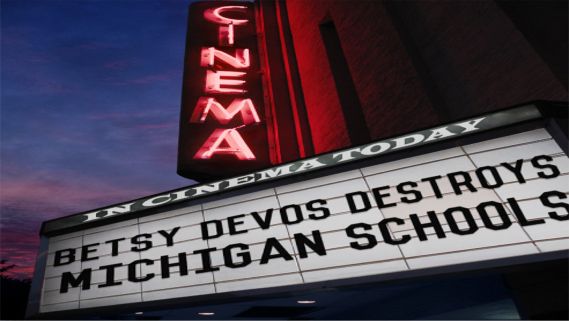Recent Important Coverage of Betsy DeVos, Part 2
After today, this blog will begin a two-week holiday break. Look for a new post on Tuesday, January 3, 2017. Good wishes for the holidays!
Here is the second half of a two-part post—yesterday and today—to summarize recent news coverage about Betsy DeVos
You may feel you already know enough about Betsy DeVos, President-elect Donald Trump’s nominee for Secretary of Education. You may be disgusted that a one-cause activist and philanthropist has been appointed for an important federal position that oversees, for example, civil rights protection for children across America’s public schools, especially as her one cause has been the expansion of school vouchers—public dollars children can carry to private and parochial schools. Maybe you’ve already learned enough to be furious that yet another billionaire from the One Percent will be shaping federal policy for the schools that serve the 99 Percent. Maybe you are angry about DeVos’s lack of experience in education—and especially the schools operated by and for the public. Betsy DeVos graduated from Holland Christian High School and, as columnist Wendy Lecker has explained: “(S)he is wholly unqualified to be Secretary of Education. She has no education degree or background, and has never worked in, attended or sent her children to public school.”
But this two-part blog will help fill in any gaps in your understanding. During DeVos’s confirmation hearing, and later, if she is confirmed and as her policy proposals roll out, you’ll have the facts at your fingertips as contributions to any and every conversation. News reporting on DeVos this week has been particularly interesting, as newspapers have been assigning reporters to investigate in depth DeVos’s advocacy to reduce regulation of marketplace school choice, the influence of her religious beliefs, her partners and allies in the sphere of school choice advocacy, and the way in which DeVos’s ideologically driven philanthropy fits right in to the work of the Waltons, the Broads, and the Gates, although DeVos is far more driven by far-right anti-government, pro-voucher ideology.
In her 2010 book, The Death and Life of the Great American School System, the New York University education historian Diane Ravitch coined the term “The Billionaire Boys Club” to describe a new wave of mega-philanthropy—no longer responsive to the ideas of a range of grant seekers but instead driven by the strategies of foundation boards and staffs—and geared not simply to meeting the funding needs of supplicant nonprofits but instead to influencing the direction of policy. In that book Ravitch warned: “Before considering the specific goals and activities of these foundations, it is worth reflecting on the wisdom of allowing education policy to be directed or, one might say, captured by private foundations. There is something fundamentally antidemocratic about relinquishing control of the public education policy agenda to private foundations run by society’s wealthiest people; when the wealthiest of these foundations are joined in common purpose, they represent an unusually powerful force that is beyond the reach of democratic institutions. These foundations, no matter how worthy and high-minded, are after all, not public agencies. They are not subject to public oversight or Recent Important Coverage of Betsy DeVos, Part 2 | janresseger:








